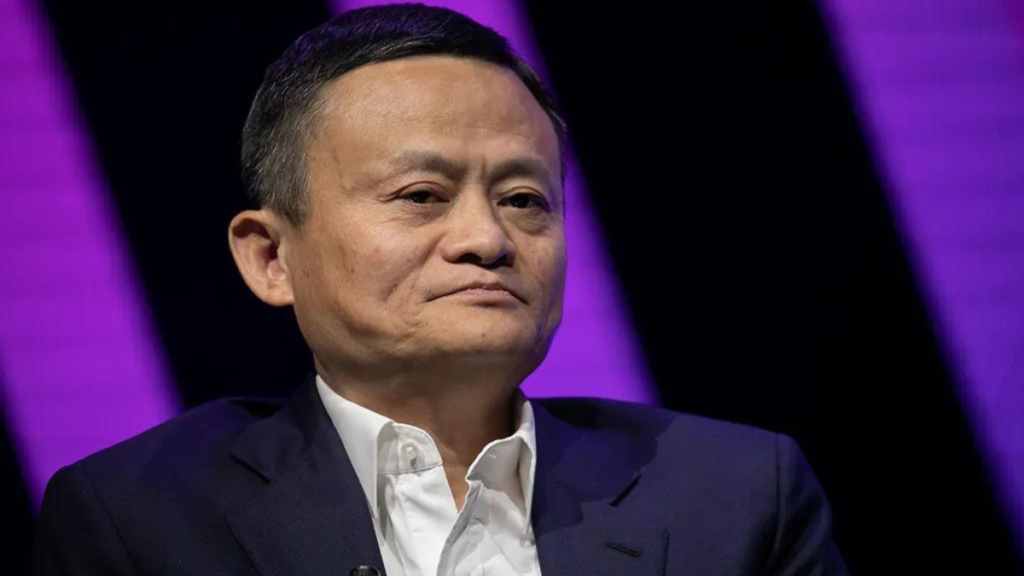In a surprising turn of events, Chinese billionaire Jack Ma has postponed plans to sell hundreds of millions of dollars worth of Alibaba shares due to a significant drop in the tech giant’s stock value. The planned share sale was set to occur through JC Properties and JSP Investment, two entities connected to Ma and his philanthropic foundation. The stock dropped 9% in New York and nearly 10% in Hong Kong, resulting in a loss of approximately $20 billion from the company’s market value. Alibaba’s Chief People Officer, Jane Jiang Fang, dismissed rumors of Ma losing confidence in Alibaba and emphasized that the transactions were part of a long-term plan aimed at enabling Ma’s office to invest in agricultural technology and welfare projects. The news of the share sale delay comes at a critical juncture for Alibaba, which is currently undergoing a significant restructuring announced in March. Ma remains “very positive” about the company’s future prospects, but neither Ma’s foundation nor Alibaba have provided immediate responses to inquiries regarding whether the share sale would proceed if the stock price rebounds.
Background of Planned Share Sale
The planned share sale was set to occur through JC Properties and JSP Investment, two entities connected to Ma and his philanthropic foundation, according to the regulatory filings. These filings coincided with Alibaba’s third-quarter earnings report, where the company announced the abandonment of its plans to spin off its cloud computing arm. This decision was attributed in part to uncertainties arising from U.S. controls on chip exports to China.
The repercussions of these announcements were swift, with Alibaba’s stock plunging 9% in New York and nearly 10% in Hong Kong, resulting in a loss of approximately $20 billion from the company’s market value. Year-to-date, Alibaba’s shares had already witnessed a decline of more than 10%.
Denial of Speculation and Long-Term Vision
Responding to the rumors triggered by news of the intended share sale, Jiang dismissed the idea that Ma had lost confidence in Alibaba. She emphasized that the transactions were part of a long-term plan outlined in August, aimed at enabling Ma’s office to invest in agricultural technology and welfare projects both domestically and internationally. According to Jiang, Ma firmly believes that Alibaba’s stock is undervalued at present, and he has no intention of selling it.
Alibaba Chairman Joe Tsai echoed Jiang’s sentiment, expressing “full confidence” in the company despite the recent challenges.
Market Conditions and Major Restructuring
The news of the share sale delay comes at a critical juncture for Alibaba, as the company is currently undergoing a significant restructuring announced in March. Initially intended to result in the division of Alibaba into six separate units, each with its own CEO and board of directors, last week’s developments prompted a reconsideration of plans not only for the cloud business but also for the listing of its grocery chain Freshippo. The company cited a need to “evaluate market conditions” as the impetus for this strategic reassessment.
Jack Ma’s Positive Outlook and Ongoing Challenges
Despite the uncertainties surrounding Alibaba, Ma’s office conveyed to the South China Morning Post that he remains “very positive” about the company’s future prospects, even with the plans for a partial sell-down. However, neither Ma’s foundation nor Alibaba has provided immediate responses to inquiries regarding whether the share sale would proceed if the stock price rebounds.
Ma, who founded Alibaba in 1999, stepped down as chairman in 2019, about a year before attracting attention from Chinese authorities for criticizing financial regulators and banks. Since then, he has maintained a relatively low profile while continuing to be a significant shareholder in Alibaba.
Conclusion
Jack Ma’s decision to postpone the sale of Alibaba shares amid a challenging market environment underscores the complex dynamics at play in the Chinese tech giant. The simultaneous reconsideration of key business strategies and major restructuring initiatives further adds to the uncertainties surrounding Alibaba’s future. As the company navigates these challenges, Ma’s steadfast confidence and the reassurances from Alibaba’s leadership will be closely watched by investors and industry observers alike.







